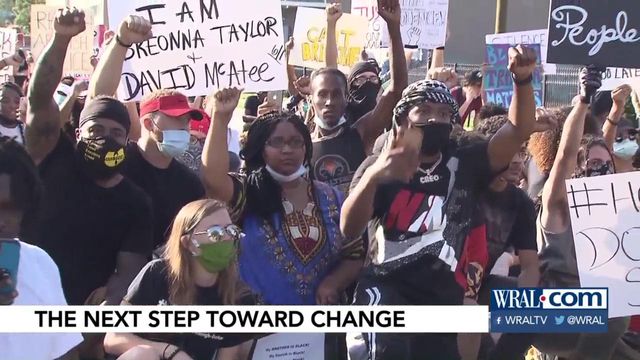How do you translate protests into tangible social change, reform?
The protests have passion and momentum--but what comes next? Experts from local universities explain how to translate protests into tangible social change and reform.
Posted — UpdatedThe passion and momentum are there. Now many are wondering how to translate it into tangible, lasting social change and reform.
Experts believe these protests will create a social impact. And in some cases, they believe they already have.
What's the next step?
Irving Joyner, a professor at North Carolina Central University School of Law, said he believes the first step is the keep the passion growing. "Continue to show up," he said. "Continue to express their outrage, but in a nonviolent manner."
He said change can start by pushing for reform of police department policy.
"One thing I would want to change is the ability of police officers to use force and fatal force in securing and apprehending people who have been the subject of a crime or criminal allegation," he said.
Duke African-American Studies Professor Mark Anthony Neal said people can also create change by voting, and by joining civic groups dedicated to equality.
"I think whenever we see multi-racial protests, I am encouraged. Because it means that the message is beginning to impact upon people who normally don’t take an interest in it," said Neal.
The experts said that's part of the change already happening: That so many people are getting involved in the fight for equality who may not have been as actively involved before.
Related Topics
• Credits
Copyright 2024 by Capitol Broadcasting Company. All rights reserved. This material may not be published, broadcast, rewritten or redistributed.





